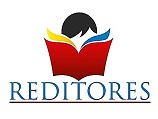Elements of an epistemological debate for the New Countable Education
Keywords:
accounting education, social sciences epistemology, socio-critical educationAbstract
The education keeps on being one of the main subjects of discussion for the countable academy although his problematic have been hiper-diagnosed by academicians and students. In the same way, this writing poses an epistemological review of the thought streams more notable of the social sciences as the comtian Positivism, the Neo-positivism of the Circle of Vienna, the Critical Rationalism of Popper, and the Critical Theory of the School of Frankfurt, from a exercise of qualitative investigation and a hermeneutic method, with the purpose to propose distinct looks to the conventional countable education, centred in traditional postures that privileges the technical training of the students above the scientific and human formation.Article Metrics
Abstract: 1089 PDF (Español (España)): 1966References
ADORNO, Theodor. y HORKHEIMER, Max. (1998). Dialéctica de la ilustración: fragmentos filosóficos. 2ª. ed. Madrid: Trotta.
ALTUVE, José Germán (2010). El pensamiento crítico y su inserción en la educación superior. Mérida: Actualidad Contable FACES Vol.13 N° 20, pp.5 -18.
AYUSTE, Ana, FECHA, Ramón, LÓPEZ, Fernando y LLERAS, Jordi. (2006). Planteamientos de la pedagogía crítica: Comunicar y transformar. 6ª. ed. Barcelona: Grao.
COMTE, Auguste. y DAILLIE, Marius. (1935). Cours de philosophie positive. (1ª. ed.) París, Francia: Librairie Larousse.
COMTE, Auguste. (1962). Discurso sobre el espíritu positivo. 4ª. ed. Buenos Aires: Aguilar.
GÓMEZ, Mauricio. (2004). Breve introducción al estado del arte de la orientación crítica en la disciplina contable. Medellín: Contaduría Universidad de Antioquia, N° 45, Pp. 115-132.
GÓMEZ, Yuliana. (2012). Pensar y renovar los modelos de educación contable: Una discusión pendiente. Teuken Bidikay Vol. 3 N° 3, Pp. 59-74. Medellín: Politécnico Colombiano.
HORKHEIMER, Max. (2003). Teoría crítica. 1ª. ed. Buenos Aires: Amorrortu.
MALDONADO, J. (2000). Hermenéutica y pedagogía. El problema de la educabilidad. Bogotá: Investigación educativa y formación docente. Vol. 2 N° 5-6, Pp. 85-94.
MARDONES, José María. (1991). Filosofía de las ciencias humanas y sociales: materiales para una fundamentación científica. 1ª. ed. Madrid: Anthropos.
MARTÍNEZ, Guillermo León. (1999). La formación humanística. Una mirada desde la óptica de la disciplina contable. Porik An, N° 01, Popayán: Universidad del Cauca. Pp. 13-34.
MARTÍNEZ, Miguel. (2004). Ciencia y arte en la metodología cualitativa. 1ª. ed. Méjico: Trillas.
PADRÓN, José. (2007). Tendencias epistemológicas de la Investigación Científica en el Siglo XXI. (Santiago de Chile). Cinta de Moebio. Revista de Epistemología de Ciencias Sociales, Universidad de Chile, 28, 1-28. http://padron.entretemas.com/Tendencias/ TendenciasRecientesEpistemologia_Padron.pdf. Consultado: 2 de febrero de 2012.
PAREDES, Gustavo. (2009). Críticas epistemológicas y metodológicas a la concepción positivista en las ciencias sociales. Ensayo y Error, Vol. XVIII, N° 36. Pp. 143-169. Caracas.
POPPER, Karl. (1998). Realismo y el objetivo de la ciencia. 2ª. ed. Madrid: Tecnos.
VASCO, Carlos Eduardo. (1989). Tres estilos de trabajo en ciencias sociales. Documentos ocasionales –CINEP- Bogotá. Disponible en Internet: http://www.scribd. com/doc/20133018/Tres-estilos-de-trabajo-en-las-Ciencias-Sociales. Consultado: 19 de octubre de 2010.
WALSH, Catherine. (2002). Indisciplinar las Ciencias Sociales. Geopolíticas del conocimiento y colonialidad del poder. Perspectivas desde lo andino. Quito: Universidad Andina Simón Bolívar – Abya-Yala. 248 pp.
ZEMELMAN, Hugo (2012). Las epistemologías de la política educativa: vigilancia y posicionamiento epistemológico del investigador en política educativa En: Praxis Educativa Vol. 7 N° 1. Punta Grossa (Bra.). Pp. 53-68.





















